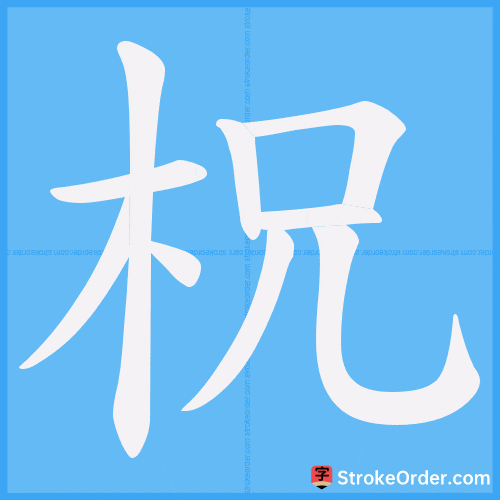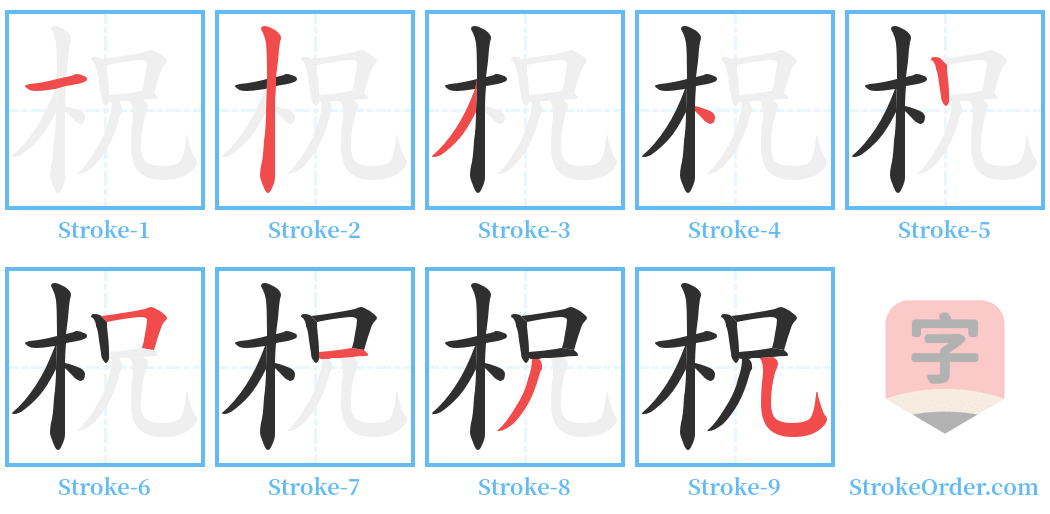柷 Stroke Order
Animated Stroke Order of 柷

Stroke Order Diagrams for 柷

Information of 柷
Pinyin
zhù
Radical
木
Strokes
9 strokes
Usage
★★
Definition
柷
1. An ancient percussion instrument, resembling a square box, made of wood, struck at the beginning of music.
古代打击乐器,像方匣子,用木头做成,奏乐开始时敲打。
2. A type of tree mentioned in ancient texts.
古书上说的一种树。
3. Another pronunciation for the first meaning.
上述[一]的另一种读音。
4. Another pronunciation for the first meaning.
上述[一]的另一种读音。
5. Used in personal names. Li Zhi, the last emperor of the Tang dynasty.
用于人名。李柷,唐代哀帝。
6. Noun. The name of a musical instrument. A wooden percussion instrument that is wide at the top and narrow at the bottom. When played, it is struck on the inner wall with a mallet to indicate the start of music.
名词 乐器名。一种木制的打击乐器,上宽下窄。演奏时,以椎敲击内壁,表示音乐开始。
《尔雅.释乐》:「所以鼓柷谓之止。」晋.郭璞.注:「柷如漆桶,方二尺四寸,深一尺八寸,中有椎柄,连底挏之,令左右击。止者,其椎名。」
7. Noun. The name of a musical instrument. A wooden percussion instrument that is wide at the top and narrow at the bottom. When played, it is struck on the inner wall with a mallet to indicate the start of music.
名词 乐器名。一种木制的打击乐器,上宽下窄。演奏时,以椎敲击内壁,表示音乐开始。
《尔雅.释乐》:「所以鼓柷谓之止。」晋.郭璞.注:「柷如漆桶,方二尺四寸,深一尺八寸,中有椎柄,连底挏之,令左右击。止者,其椎名。」